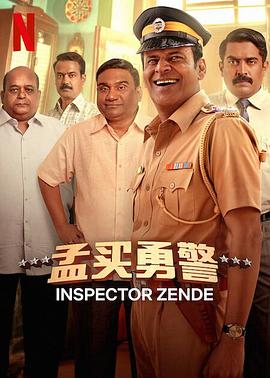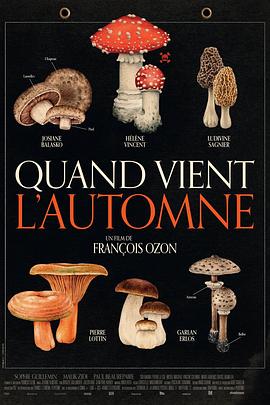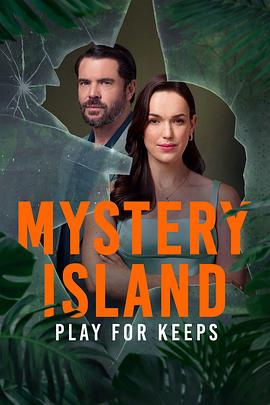
上映:
1948
更新:
2025-06-22 09:47
剧情:
Somewhere in the remote region, the war ends. In the midst of ruined cities and houses in the str..
- 爱豆播放
猜你喜欢
2025
0.0分
剧情片
TC国语
2025
0.0分
剧情片
当连环杀手Carl Bhojraj逃离监狱并在孟买重新出现时,坚定的探长Zende再次挺身而出,抓住了狡猾的逃犯。
HD中字
2024
0.0分
剧情片
HD中字
2025
0.0分
剧情片
Mystery Island hosts a corporate retreat with a guest being Emilia's ex-fiancé. Old feelings become complicated, tensions run high, and allegations arise when a guest is found dead.
HD中字
2025
0.0分
剧情片
莉莉·詹姆斯 杰克逊·怀特 米哈拉·赫罗德 本·施耐泽 皮尔森·福德 克里·杜瓦尔 伊恩·科莱蒂 丹·史蒂文斯 安娜·伊·普伊格 奥利维亚·罗斯·基根 加布·凯斯勒 乔莉·费舍尔 德蒙特·莫罗尼 科拉尔·培尼亚 Hannah E. Keaton Aidan Laprete 玛丽·尼利 Pedro Correa 莎拉·科茨 亨特·桑索内
/
影片聚焦相亲约会社交公司Bumble创始人和前CEO惠特尼·沃尔夫·赫德的人生故事。初出茅庐的惠特尼·沃尔夫(莉莉·詹姆斯 Lily James 饰)建立Tinder后,创业路上看似一帆风顺。但此时偏偏遇上重大打击,被迫离开公司。但她并没有低头,反而决心改变女性在科技界的地位,提倡打造以女性主导的交友平台Bumble。
HD中字
2025
0.0分
剧情片
麦肯娜·格瑞丝 乔乔·蕾吉娜 杰西·威廉姆斯 戴克·蒙哥马利 福勒斯特·古德勒克 Tamara Austin 费尔南达·安德拉德 莉莉·简 玛利亚·贝克 普雷斯顿·卡梅卡 Donn Lamkin 布拉德·比耶尔 维维安·弗莱明·阿尔瓦雷斯 Essex O'Brien Summer Dawn Wallace Stephanie Bristow 劳拉·霍沃德 达维娜·里德 谢莉塔·博
/
在她们的母亲服药过量后,两姐妹担心寄养系统会将她们分开,决定隐藏尸体。但他们的谎言可能会被发现,他们必须决定愿意在多大程度上保守自己的秘密。
HD中字
《欧洲的某个地方》剧情介绍
爱豆影视提供影视作品欧洲的某个地方高清全集在线观看的影视全集网,剧情片《欧洲的某个地方》全集作品的导演是Radványi Géza ,由Artúr Somlay Miklós Gábor Zsuzsa Bánki 主演,欧洲的某个地方在豆瓣的评分为0.0,本片由小编于2025-06-22 09:47更新,希望大家喜欢,可以把《欧洲的某个地方》推荐给你朋友,本作品的地址为 https://www.fzbqg.com/movie/index34916.html
《欧洲的某个地方》简介:
Somewhere in the remote region, the war ends. In the midst of ruined cities and houses in the streets, in rural hamlets, everywhere where people still live, are children who have lost their homes and parents. Abandoned, hungry, and in rags, defenseless and humiliated, they wander through the world. Hunger drives them. Little streams of orphans merge into a river which rushes forward and submerges everything in its path. The children do not know any feeling; they know only the world of their enemies. They fight, steal, struggle for a mouthful of food, and violence is merely a means to get it. A gang led by Cahoun finds a refuge in an abandoned castle and encounters an old composer who has voluntarily retired into solitude from a world of hatred, treason, and crime. How can they find a common ground, how can they become mutual friends? The castle becomes their hiding place but possibly it will also be their first home which they may organize and must defend. But even for this, the price will be very high.
To this simple story, the journalist, writer, poet, scriptwriter, movie director, and film theoretician Béla Balázs applied many years of experience. He and the director Géza Radványi created a work which opened a new postwar chapter in Hungarian film. Surprisingly, this film has not lost any of its impact over the years, especially on a profound philosophical level. That is to say, it is not merely a movie about war; it is not important in what location and in what period of time it takes place. It is a story outside of time about the joyless fate of children who pay dearly for the cruel war games of adults.
At the time it was premiered, the movie was enthusiastically received by the critics. The main roles were taken by streetwise boys of a children's group who created their roles improvisationally in close contact with a few professional actors, and in the children's acting their own fresh experience of war's turmoil appears to be reflected. At the same time, their performance fits admirably into the mosaic of a very complex movie language. Balázs's influence revealed itself, above all, in the introductory sequences: an air raid on an amusement park, seen in a montage of dramatic situations evoking the last spasms of war, where, undoubtedly, we discern the influence of classical Soviet cinematography. Shooting, the boy's escape, the locomotive's wheels, the shadows of soldiers with submachine guns, the sound of a whistle—the images are linked together in abrupt sequences in which varying shots and expressive sharp sounds are emphasized. A perfectly planned screenplay avoided all elements of sentimentality, time-worn stereotypes of wronged children, romanticism and cheap simplification. The authors succeeded in bridging the perilous dramatic abyss of the metamorphosis of a children's community. Their telling of the story (the scene of pillaging, the assault on the castle, etc) independently introduced some neorealist elements which, at that time, were being propagated in Italy by De Sica, Rossellini, and other film artists. The rebukes of contemporary critics, who called attention to "formalism for its own sake" have been forgotten. The masterly art of cameraman Barnabás Hegyi gives vitality to the poetic images. His angle shots of the children, his composition of scenes in the castle interior, are a living document of the times, and underline the atmosphere and the characters of the protagonists. The success of the picture was also enhanced by the musical art of composer Dénes Buday who, in tense situations, inserted the theme of the Marseilaise into the movie's structure, as a motive of community unification, as an expression of friendship and the possibility of understanding.
Valahol Europaban is the first significant postwar Hungarian film. It originated in a relaxed atmosphere, replete with joy and euphoria, and it includes these elements in order to demonstrate the strength of humanism, tolerance, and friendship. It represents a general condemnation of war anywhere in the world, in any form.





